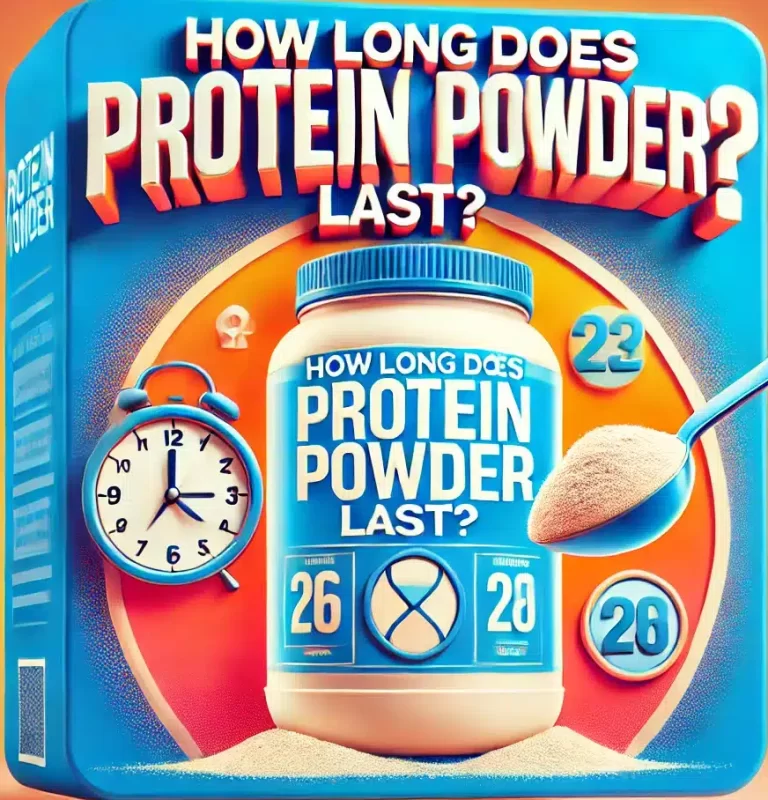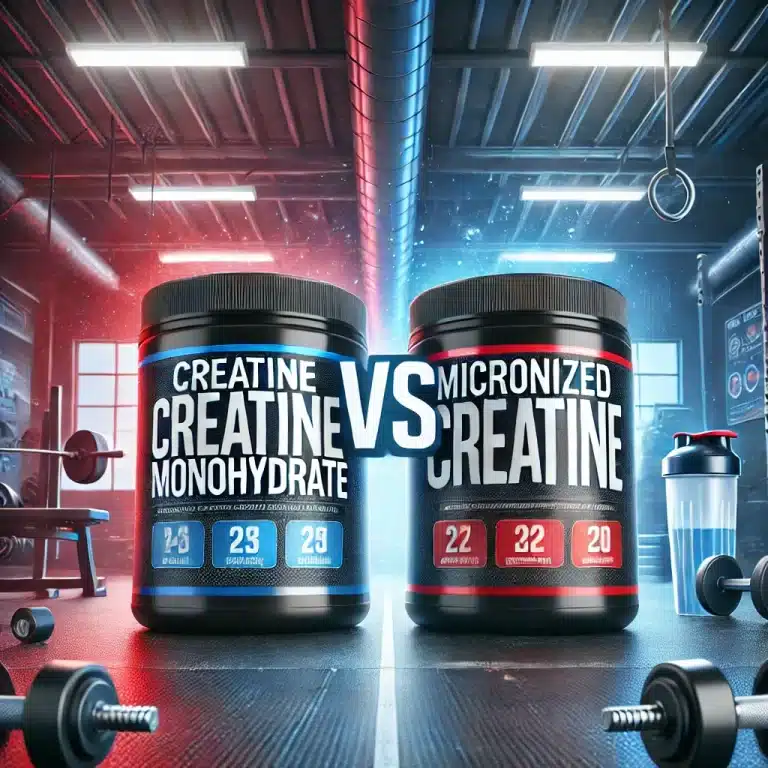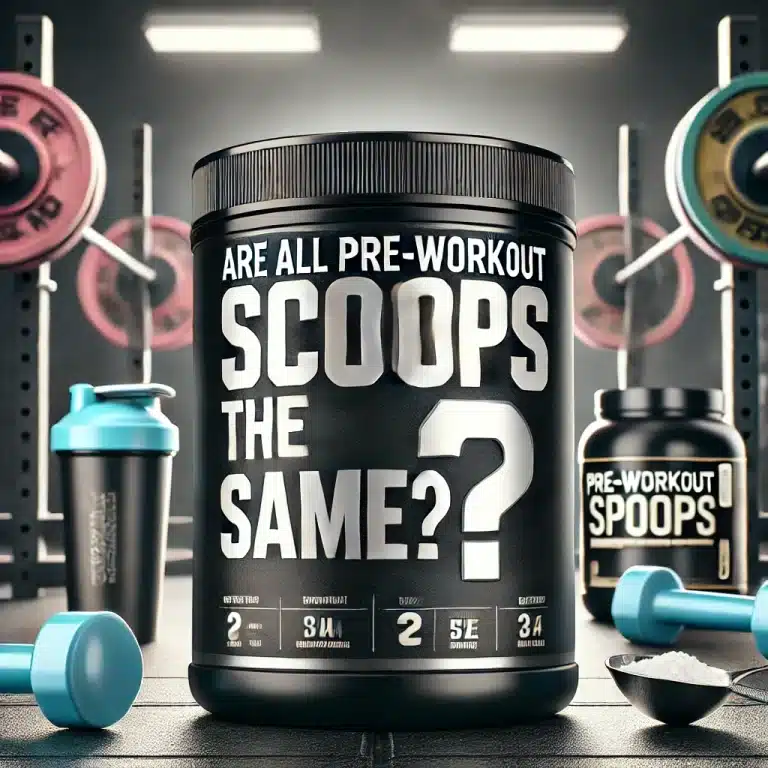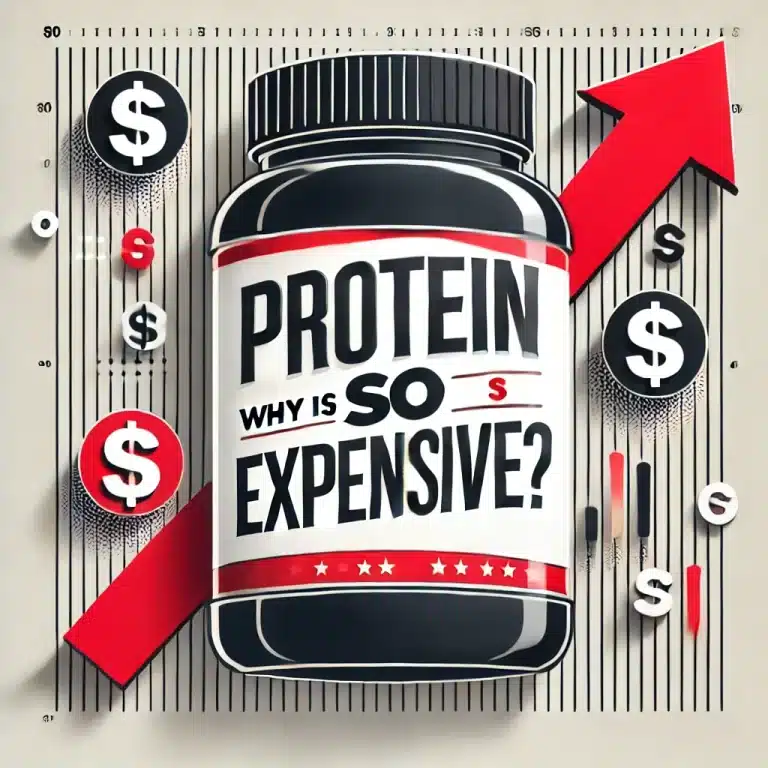Can You Take Creatine on an Empty Stomach? What the Science (and Real Life) Says
I vividly recall my first try with creatine. Just beginning to take my training seriously, I visited the gym five days a week, tracked every macro, and tried to maximize every bit of performance out of my regimen. Naturally, also, the supplement everyone advised was creatine. “It’s the most studied supplement ever,” my friend who lifts claimed. You will quickly see the difference.
I thus grabbed a tub, scooped out a serving, threw it into a glass of water, and chugged it down. Not breakfast, not food, just feelings, and a shaker bottle.
Ten minutes subsequently? My stomach began to emit sounds like those of an argument with itself.
That had me wondering: Can you take creatine on an empty stomach? Like, should you? Alternatively, am I simply doing it wrong?
Many people, especially those who train early, fast, or follow intermittent fasting, have this question. Furthermore, even if creatine is safe and useful, your body may react differently depending on how you take it. Some people feel perfectly good starting their morning with it first thing. Others wind up feeling just plain uncomfortable, bloated, or sick.
Thus, in this post, we will dissect the science underlying creatine timing, digestion, and whether or not you can, and should, take it on an empty stomach. This one is for you if you want to maximize performance without sacrificing gut feeling.
What Is Creatine and Why Is It Important?
Naturally occurring in your body, creatine is mostly found in muscles where it is essential for the creation of energy. High-intensity, short-duration exercises like weightlifting, running, or other explosive motions specifically call for it.
Although your body generates some creatine on its own, adding more will increase muscle reserves, improve performance, and help with recuperation. Among the several types, creatine monohydrate is the most researched and generally advised as it is safe and effective.
Why You Might Choose to Take Creatine on an Empty Stomach
For several reasons, including empty stomach consumption, taking creatine can be a sensible option. Here’s why it might be appropriate for you:
- Morning Routines Made Easy:
Taking creatine on an empty stomach will help your morning ritual if you love beginning your day with a clean slate. Many of the customers I have seen would rather take their pills before breakfast to maintain consistency and simplicity. You’re good to go if you quickly mix juice or water. - Pre-Workout Simplicity:
Early morning workouts often call for working empty-handed. Perfect for this regimen, creatine provides a performance boost without a pre-workout meal needed. Many of my clients find this to be the ideal approach for optimizing convenience and energy. - Support During Fasting Protocols:
If you follow intermittent fasting, creatine will fit quite easily into your calendar. You can take it during fasting windows to help your exercise goals without upsetting your eating plans since it doesn’t break a fast. For individuals who wish to keep constant with both fasting and supplements, this makes it a favorite. - Enhanced Energy and Focus:
Especially before a workout, taking creatine on an empty stomach can make you feel lighter and more concentrated. Many of my customers discover they perform better during high-intensity sessions when they had previously supplemented with creatine, without the weight of a meal. - Consistency and Habit-Building:
Starting a daily supplement regimen first thing in the morning or before exercise makes it simpler. Using creatine on an empty stomach can become a regular habit that will help you keep to your supplement targets without obsessing about meal compatibility or timing.
Can You Take Creatine on an Empty Stomach?
The quick response is: Indeed, you can safely take creatine on an empty stomach. Like many facets of nutrition, though, whether this is the ideal strategy will rely on your tastes, objectives, and bodily reactions. I have worked with clients over the years who swear by consuming creatine first thing in the morning without breakfast and others who would rather combine it with a meal for more comfort. Allow me to divide this out for you here.
1. Absorption on an Empty Stomach
Taking creatine on an empty stomach leaves your digestive system devoid of food to slow down absorption. This allows the creatine to reach your muscles more rapidly from your bloodstream. Should you enjoy working out early in the day, this might be a handy choice. For customers who have a quick morning ritual but yet want to maximize their performance, I often advise this strategy.
2. Digestive Sensitivity
Said otherwise, not everyone equally enjoys creatine on an empty stomach. Some people find it mildly uncomfortable for their digestion, either with nausea or bloating. Should this describe you, it does not imply you have to completely give up on creatine. To counteract its effects on your stomach, I advise having it during a meal or as a little snack. Clients who take creatine with something simple like a banana or a slice of bread usually feel a lot better, in my experience.
3. Muscle Uptake and Carbohydrates
The way your body absorbs creatine into muscle cells is another consideration. Combining creatine with carbohydrates will assist boost insulin release, so improving the absorption into your muscles. Although this isn’t required, if you want to maximize every facet of your supplements, this is a good approach. Although you may lose this little advantage if you take creatine on an empty stomach, over time your muscles will still saturate with creatine as long as you are regular.
4. Convenience and Routine
Taking creatine on an empty stomach can also be incredibly convenient. For many of my clients, this fits quite nicely with their morning schedule. They might proceed to the gym after mixing it with water or a fast pre-workout drink. If you find it difficult to remember to take supplements, including creatine in your morning routine will help guarantee you never miss a dosage.
Benefits of Taking Creatine on an Empty Stomach

Depending on your preferences and way of life, taking creatine on an empty stomach can have numerous benefits. I would want to communicate with my clients these main advantages:
- Quick and Efficient Absorption:
Taken empty-handed, creatine can be absorbed faster without food to inhibit digestion. If you take creatine as part of your pre-workout regimen and wish speedier availability to your muscles, this could be extremely helpful. - Simplicity and Convenience:
Taking creatine first thing in the morning or before an exercise is a handy choice for people with hectic schedules or simple supplement regimens since it eliminates the need to plan a meal. For customers that want simplicity, I usually advise this method. - Fasting-Compatible:
A fasting-friendly supplement, creatine is a great option for those intermittent fasting. It helps with performance and recuperation without violating the fasting state, thereby enabling you to keep on target with your nutritional plans. - Energizing Pre-Workout Option:
If you work out empty-handed, adding creatine to your pre-workout routine will increase your performance and energy without calling for a whole meal. Early-morning training sessions especially benefit many of my clients in this regard. - Reduced Risk of Nutrient Interaction:
Using creatine without other nutrients guarantees it won’t be vying for absorption. For people who wish to simplify their supplement usage, this makes it a wise decision.
Potential Drawbacks of Taking Creatine on an Empty Stomach
Although consuming creatine on an empty stomach is usually safe for adults and teenagers and works well, there are a few possible negative effects to take into account. As I often tell my clients, knowing these will enable you to determine whether this strategy is appropriate for your situation:
- Digestive Discomfort:
Some people find that using creatine on an empty stomach causes minor stomach problems including bloating, nausea, diarrhea (makes you poop often), or cramps. Usually, this is the result of the supplement’s intensified interaction with an empty digestive tract. If you find this uncomfortable, consider combining your creatine with more water or timing it with a little snack to help. - Missed Insulin Response:
Coupled with carbohydrates, creatine absorption into muscle cells can be improved since carbohydrates increase insulin production. You might miss this little advantage if you take it on an empty stomach. Although it won’t significantly change your results, those who want to maximize every facet of their supplements could want to take creatine with a meal or post-workout shake. - Energy Levels for Workouts:
If you train on an empty stomach, ingesting creatine by itself might not be sufficient to power your exercise. While still getting the advantages of creatine, combining it with a little pre-workout snack like a banana or a slice of toast can provide an extra energy boost. - Hydration Needs:
Creatine pulls water into your muscles, therefore raising your body’s need for hydration. Some people might not drink enough water to offset this impact when taken empty-handed, which might cause symptoms including cramps or tiredness. Always pair your creatine with enough water to be hydrated. - Individual Tolerance Variations:
Everybody’s body responds differently to supplements; some people may find that using creatine without food just doesn’t set well with them. Changing your schedule to include food can make all the difference if you have ongoing discomfort or other problems.
How to Take Creatine on an Empty Stomach
If you decide to take creatine on an empty stomach, A few main techniques will help to ensure that the experience is as seamless and successful as it may be. I counsel my clients thus:
- Mix It Well: Make sure your creatine dissolves in juice, water, or another drink. This not only increases absorption but also reduces the likelihood of stomach trouble. Thoroughly churning or mixing the concoction seems to help your stomach more easily.
- Stay Hydrated: Because creatine draws water into your muscles, you must be well hydrated. Along with your creatine dose, start your day with a full glass of water and keep drinking fluids throughout to nourish your muscles and avoid dehydration.
- Start Small: Start with a lesser dosage around 3 grams to test your tolerance if you are fresh to creatine or trying it on an empty stomach for the first time. Your body will adjust; then, you can raise it to the recommended daily dosage of five grams.
- Take It First Thing in the Morning: Including creatine in your daily ritual might help individuals who wish a straightforward and constant schedule. This guarantees that you won’t forget it and start your day energizingly.
- Adjust Based on Feedback: Tune in to your body. If you feel uncomfortable, that is, if you have bloating or nausea, you might choose to split your dosage or take it with a light snack later on in the day. Most customers find that a little trial and error results in a routine ideal for their requirements.
- Combine with Other Supplements Wisely: If you use additional supplements, consider interactions. While creatine is flexible and goes great with many choices, too many supplements taken simultaneously on an empty stomach could overwhelm your digestive system. Space them appropriately if necessary.
Should You Take Creatine Before or After a Meal?
Whether you choose to take creatine before or after a meal usually boils down to taste, way of life, and physiological reaction. Both strategies have advantages, and as a nutritionist, I always advise my clients to try what suits them best.
- Taking Creatine Before a Meal: If you enjoy a quick and easy schedule, taking creatine before a meal could be a terrific choice. Since your digestive system isn’t processing other nutrients, doing this might let you enable somewhat faster absorption. For individuals who would want to take creatine first thing in the morning or before an exercise, this especially helps. Starting your dinner soon after taking creatine can also assist in offsetting any possible digestive trouble. This timing usually finds the ideal mix for clients with sensitive stomachs between comfort and efficiency.
- Taking Creatine After a Meal: Conversely, using creatine after a meal guarantees that your digestive system is already working, which might assist in lowering nausea or bloating risk. Combining creatine with carbohydrates from your dinner might also help it be absorbed into your muscles because of the insulin reaction carbs create. Particularly when clients are already eating a meal high in proteins and carbohydrates to help recovery, I often advise this approach to those who wish to include creatine into their post-workout diet.
- Finding the Balance: The secret is consistency whether you take creatine before or after a meal. Both methods will let your body efficiently over time absorb and use creatine. If unsure, try both techniques and observe how your body reacts. Most of my clients discover that developing an easy-to-learn regimen is more important than timing.
FAQs About Taking Creatine on an Empty Stomach:
Is creatine less effective on an empty stomach?
No, creatine is just as effective on an empty stomach as it is with food, provided you take it consistently.
Can creatine upset your stomach if taken without food?
Some people find that using creatine without food causes minor nausea or bloating. Starting with a lesser dosage and drinking water helps lessen these side effects.
Does creatine need to be paired with carbs?
Although they somewhat improve creatine absorption, carbohydrates are not necessary. Given consistency, your muscles will still saturate with creatine over time.
Should I take creatine before or after a workout?
Either helps! While post-workout creatine can help with recuperation, pre-workout creatine can improve instantaneous performance.
My Perspective as a Nutritionist:
Let’s thus resolve it: may you take creatine on an empty stomach? The response is certainly true. Safe, powerful, and devoid of meal requirements to perform its function is creatine. It won’t lose potency if you take it alone in a glass of water; there is no rule stating you should match it with a meal.
The real-world component, though, is that just because you can does not always imply you should. Some folks find it hardly significant to take creatine without eating. For others, especially those with sensitive stomachs, it can trigger nausea, cramping, or simply a residual “off” sensation that can interfere with the whole workout.
If that describes you, then creatine is not off-target for you. It just suggests you could wish to vary your approach. Try combining it with your post-workout smoothie, couple it with a little snack, or just wait until your first meal of the day. Still, you will get all the muscular, strength, and recuperation advantages, minus the stomach problems.
Creatine is ultimately somewhat consistent toward the end. Whether you take it morning or evening, before or after exercising, with food or without, it works as long as you keep taking it. So if you feel good after empty-stomach dosing? Proceed as advised. Don’t force it, though, if it sends your belly into anarchy.
Pay attention to your bodily signals. Edit as needed. Pay close attention to what enables you to feel well, recover effectively, and train hard, that is the overall goal anyhow.






